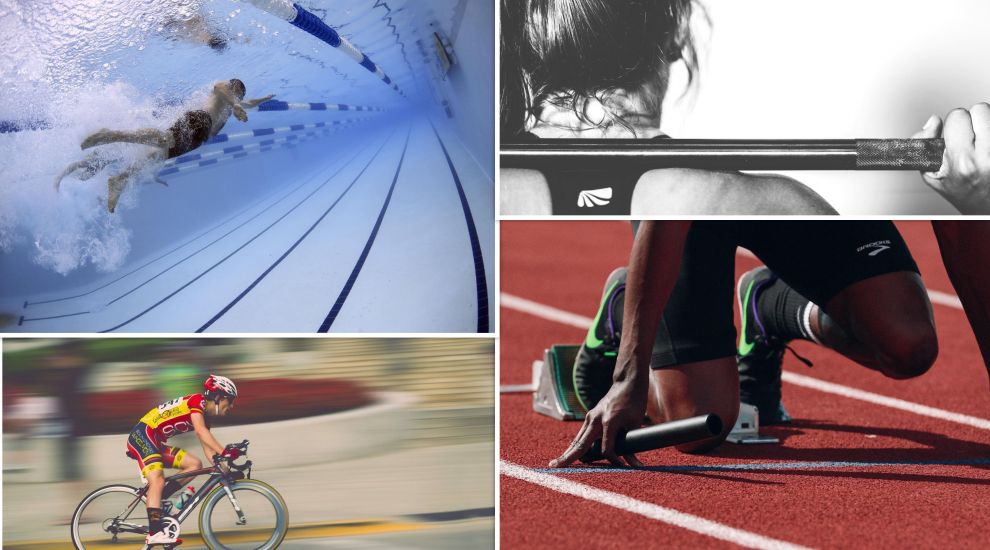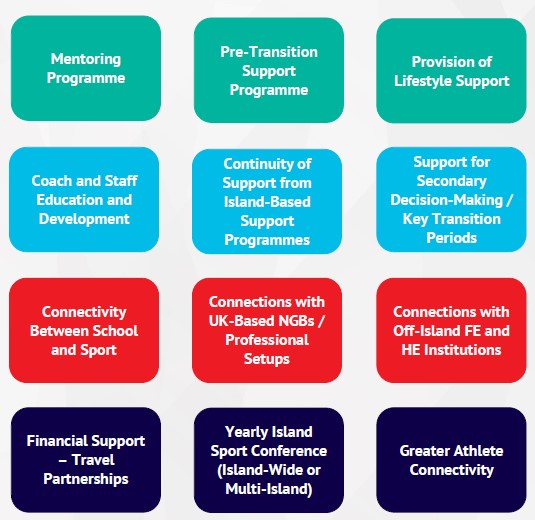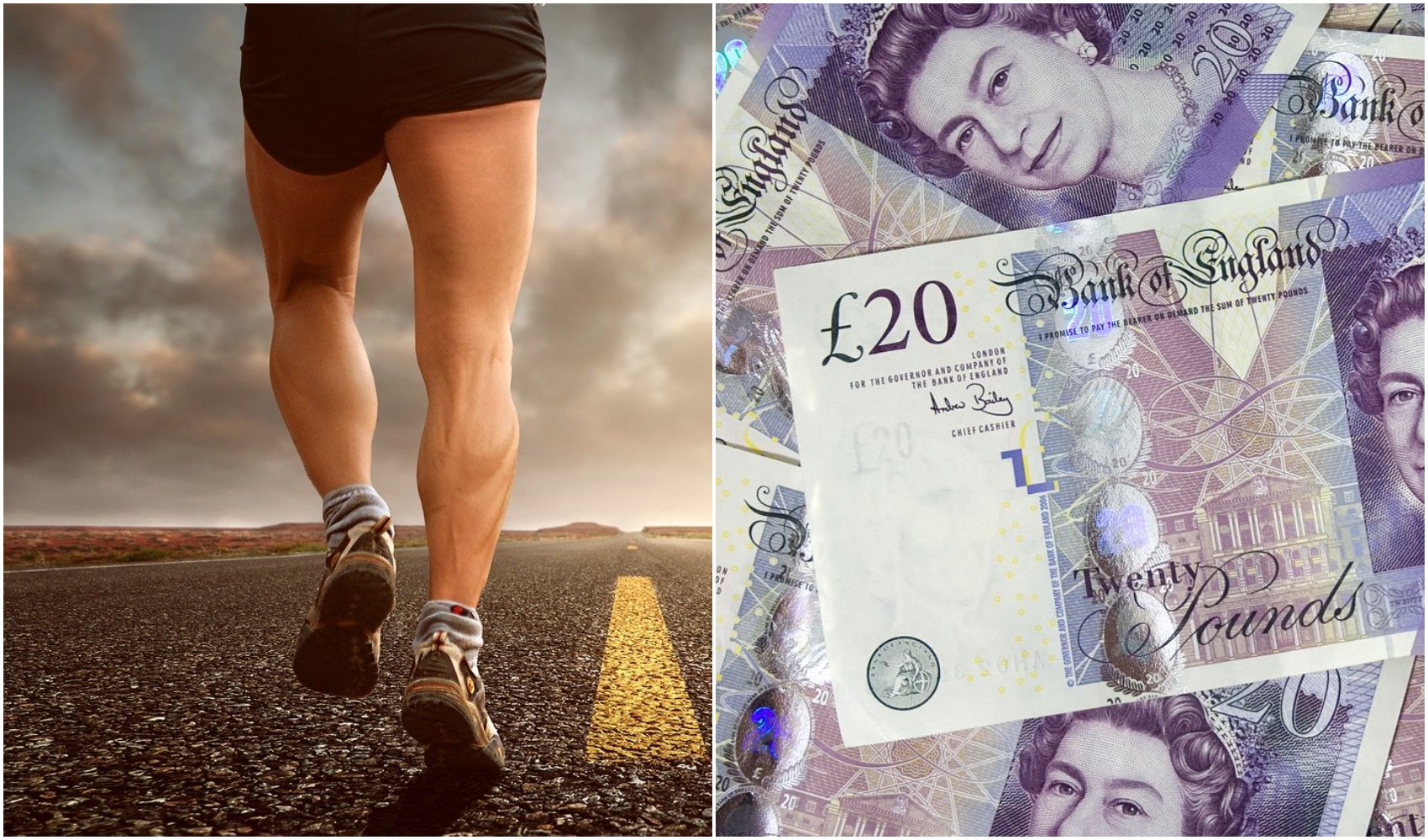


As the Commonwealth Games have shown, the Channel Islands are a hub of talent when it comes to sport... but lots of factors are holding athletes back from reaching their full potential at home.
Access to specialist facilities and coaching, opportunity to train and compete with elite athletes and travel issues are among the main reasons local athletes choose to live the island for their careers, according to new research.
Athletes from Jersey, Guernsey and the Isle of Man were interviewed by the Talented Athlete Scholarship Scheme (TASS) as they explored the decision-making processes and experiences of island athletes who migrate off island for sport and/or education/work.
The Jersey Sport Foundation, the Guernsey Institute of Sport and IOM Sport Aid all participated in the project, which included 86 surveys, 22 interviews and 12 focus groups.
The report, published at the end of July, highlights the main factors pulling athletes towards the UK or further afield, as well as those keeping them on island and includes a series of recommendations on how to optimise the support given to those who move away from their island.
Express took a closer look at the issues...

Pictured: 50m pools are among the facilities lacking in the island.
In addition to the cost of living on an island and the lack of opportunities for further education, one of the main concerns raised by athletes was the lack of “enhanced elite sport infrastructure”.
This includes high quality and specialist facilities such as 50m swimming pools, indoor athletics tracks, and cycling velodromes. The desire for specialist coaching was also mentioned by multiple athletes regardless of whether they were aiming to pursue a dual career or a full-time sporting career off-island.
Combined with more competition opportunities and access to developed performance pathways, these factors emerged as prominent areas ‘pulling’ athletes towards the UK and further afield.
Some athletes even described limited access to elite sport infrastructure as a key reason for leaving.
“When discussing island sport infrastructure, athletes and staff mentioned that island sporting associations, facilities, coaching, and access to competition could be described as barriers to progressing within sport on island,” the report notes.
In addition to those, moving out of their island also means athletes have the opportunity train with top level athletes and in larger training groups, with helped push and motivate them to perform at a higher level.
Being exposed to UK competitors and competitions was also described as helpful, and something that was lacking when on island. Athletes said engaging in more challenging events, sometimes on a weekly basis, helped enhance performances.

Pictured: The cost and logistics of travelling off-island, for training and/or competitions, are a “key challenge” for island athletes.
Travel was also cited as one of the factors “pushing” athletes - sometimes from as young as 16 years old - off-island, with one parent saying: “That stretch of water is a disadvantage for us.”
The report identified the cost and logistics of travelling off-island, for training and/or competitions, as a “key challenge” for island athletes.
“It was identified that on all three islands some financial assistance is provided to athletes of the required performance level, whether that is through grants distributed through associations or through funds directly provided to athletes for expenses,” the report said.
“These funds were extremely beneficial for the athletes that had access to them, however, we all know it is impossible to eradicate the need for families and athletes to fund some travel off island.”
The team behind the report – Grace Harrison, Dr Emma Vickers and Dr Emily Cartigny – suggested developing partnerships with local travel companies so that athletes could have access to subsidised travel.
“This could take the form of a sponsorship partnership where supported athletes receive discounted rates on off island travel,” they said.

Pictured: The 12 recommendations from the TASS team.
The TASS team made 12 recommendations to improve the support given to island athletes.
This ranged from mentoring programmes; support before, during, and after, where relevant, the transition off-island; as well as connections with UK-based national governing bodies to provide island athletes with the same opportunities as their UK counterparts.
In addition, the team recommended local coaches receive formal training to enable them to provide the best support they can to the athletes they work with.
They also suggested creating greater connectivity between school and to give athletes the “best possible opportunity to thrive in the classroom and the field of play”, as well as supporting dual career decision making.
This could include, they said, performance-focused athlete programmes based in the school, better communication between schools and local support programmes as well as tailored events for school staff around key topic areas such as dual career transitions, among other things.
Jersey is currently testing the TASS Dual Career Accreditation Programme with one of their schools, with a desire for all schools on island to become accredited. The accreditation recognises an education institutions commitment to dual career support for talented athletes and acknowledges an enhanced level of academic flexibility and understanding within an institution, allowing talented athletes to balance their studies and sport.

Pictured: Investing in athletes brings "its own benefits in terms of income back into the sport sector", the TASS team said.
Investing in performance sports will not only help athletes thrive but also yield benefits for the island as a whole, the TASS team said.
Island athletes succeeding on the international stage will lead to enhanced international recognition, which will in turn lead to “publicity, positive reputation, and more young people wishing to engage in sport and physical activity on the island”.
“This brings its own benefits in terms of income back into the sport sector, as well as a reduction of costs associated with physical and mental ill health through lack of physical activity,” they wrote.
In addition, the island could receive more recognition and investments from UK-based organisations, and, in the longer term, be seen as a ‘sporting hubs’, with clubs, NGBs, and international federations coming to visit the island to experience the sporting environment.
If athletes know there are resources and infrastructure in place to support them, they are more likely to stay on their island, enabling it to not only retain and regain sporting talent, but also introduce highly skilled individuals to the island’s vocational workforce, benefiting the local economy, the report said.
Comments
Comments on this story express the views of the commentator only, not Bailiwick Publishing. We are unable to guarantee the accuracy of any of those comments.